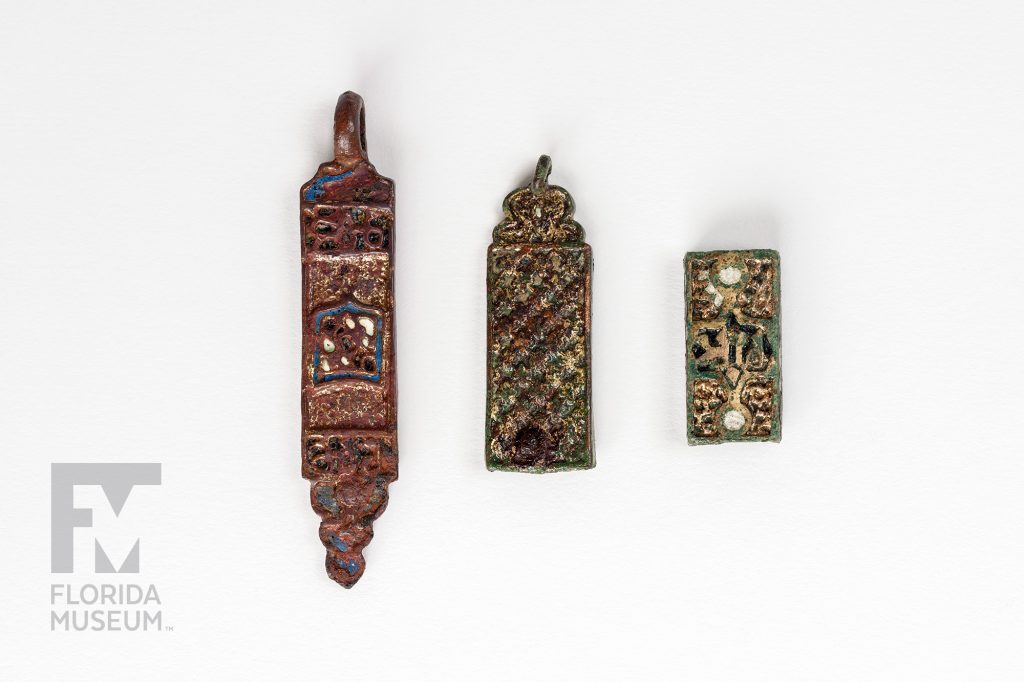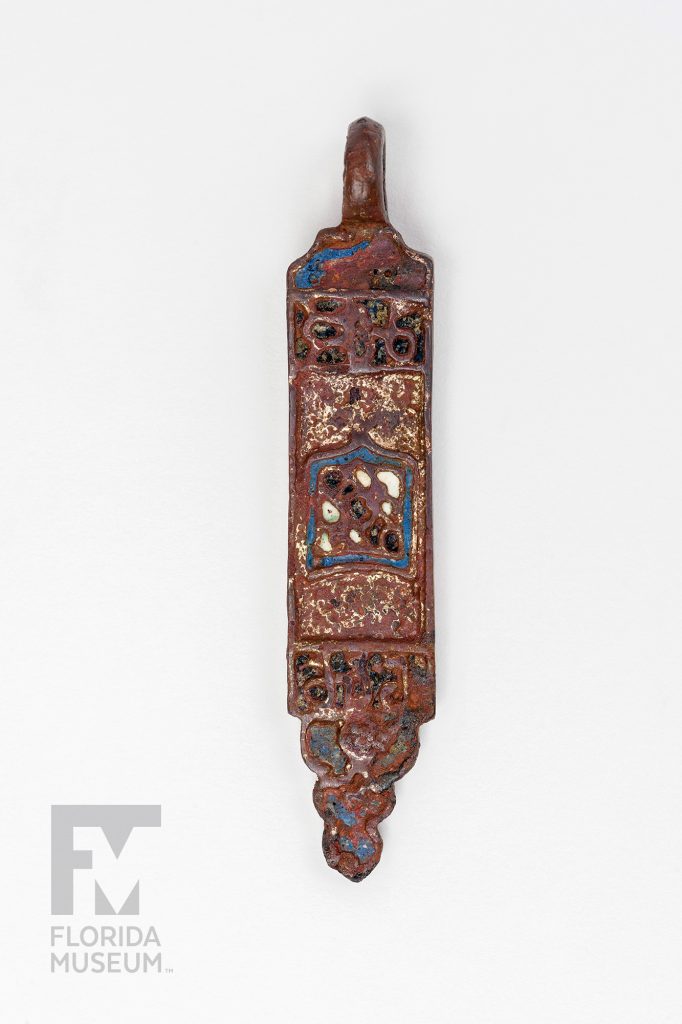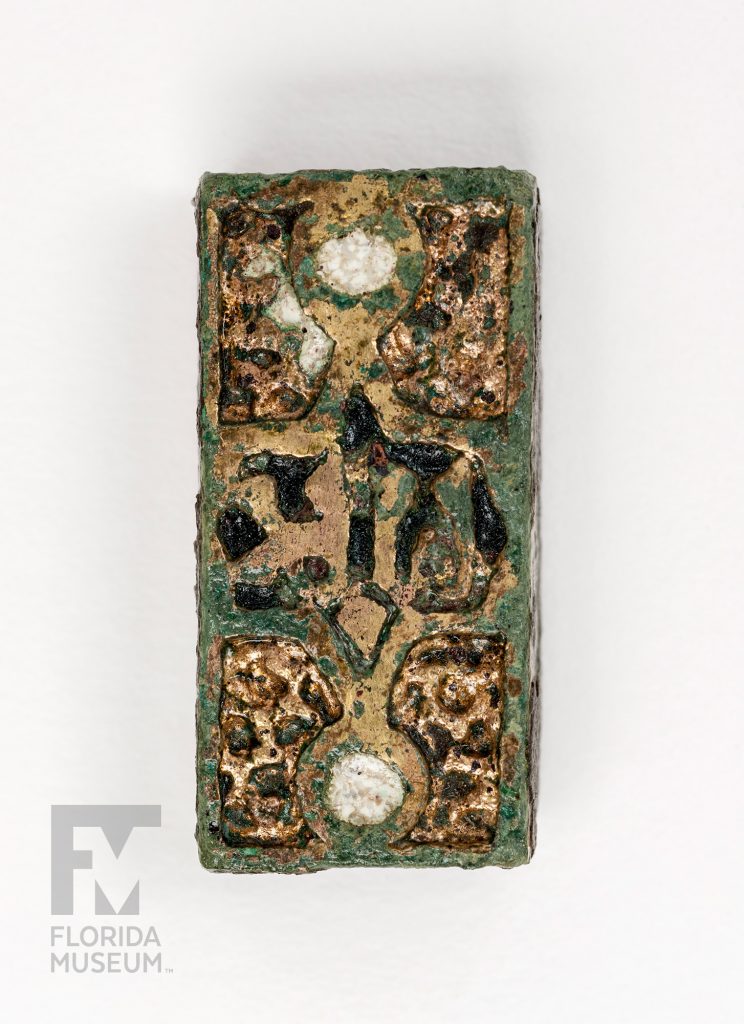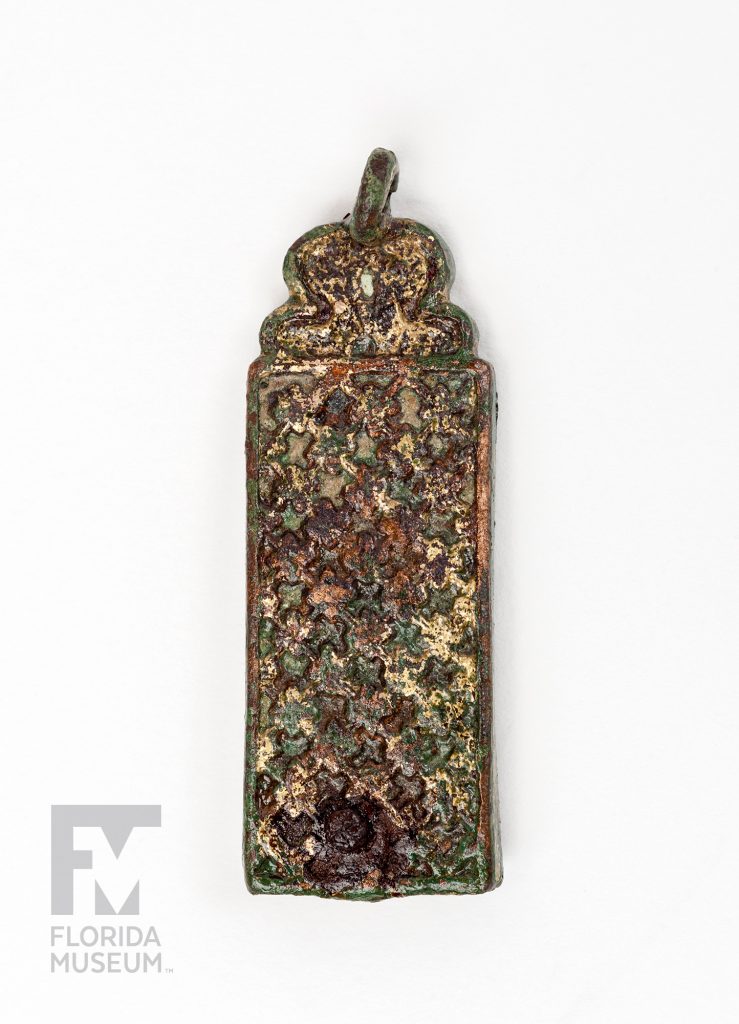Books and recordkeeping were important in Spanish colonial daily life, but evidence is rare at archaeological sites. These books clasps may have secured important documents, bibles or other books.
Summary
Spanish Book Clasps
From Puerto Real, Haiti and Nueva Cádiz, Venezuela
Dates to 16th century
Collection
Story
These are 16th-century book clasps from the sites of Puerto Real, Haiti and Nueva Cádiz, Venezuela. Books and record keeping were very important in the daily lives and activities of the Spanish. They would keep records of economic activity, births, deaths, baptisms and bountiful legal records as well. It’s very rare to find them on archaeological sites and these particular clasps may have been used for Bibles or other books, or to secure important documents.
Gifford Waters
Collection Manager, Historical Archaeology*
Florida Museum of Natural History
Exhibit
On display Sept. 23, 2017-Jan. 7, 2018, Rare, Beautiful & Fascinating: 100 Years @FloridaMuseum celebrated the Museum’s rich history. Each Museum collection was asked to contribute its most interesting items and share the stories that make them special. Though the physical exhibit is closed, this companion website remains online, providing an opportunity to experience the Florida Museum’s most treasured specimens.
Exhibit Area: Objects Tell Stories
Theme: Spanish Colonial Archaeology
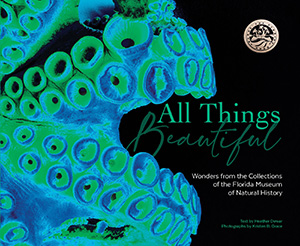 Want to see more? Explore more than 300 breathtaking color photos of plants, animals, fossils and cultural heritage materials from the Florida Museum of Natural History’s collections in the award-winning book All Things Beautiful available from the University Press of Florida.
Want to see more? Explore more than 300 breathtaking color photos of plants, animals, fossils and cultural heritage materials from the Florida Museum of Natural History’s collections in the award-winning book All Things Beautiful available from the University Press of Florida.
*This title was accurate at the time the exhibit was on display in 2017. Please visit the collection website to verify current staff and student information.
